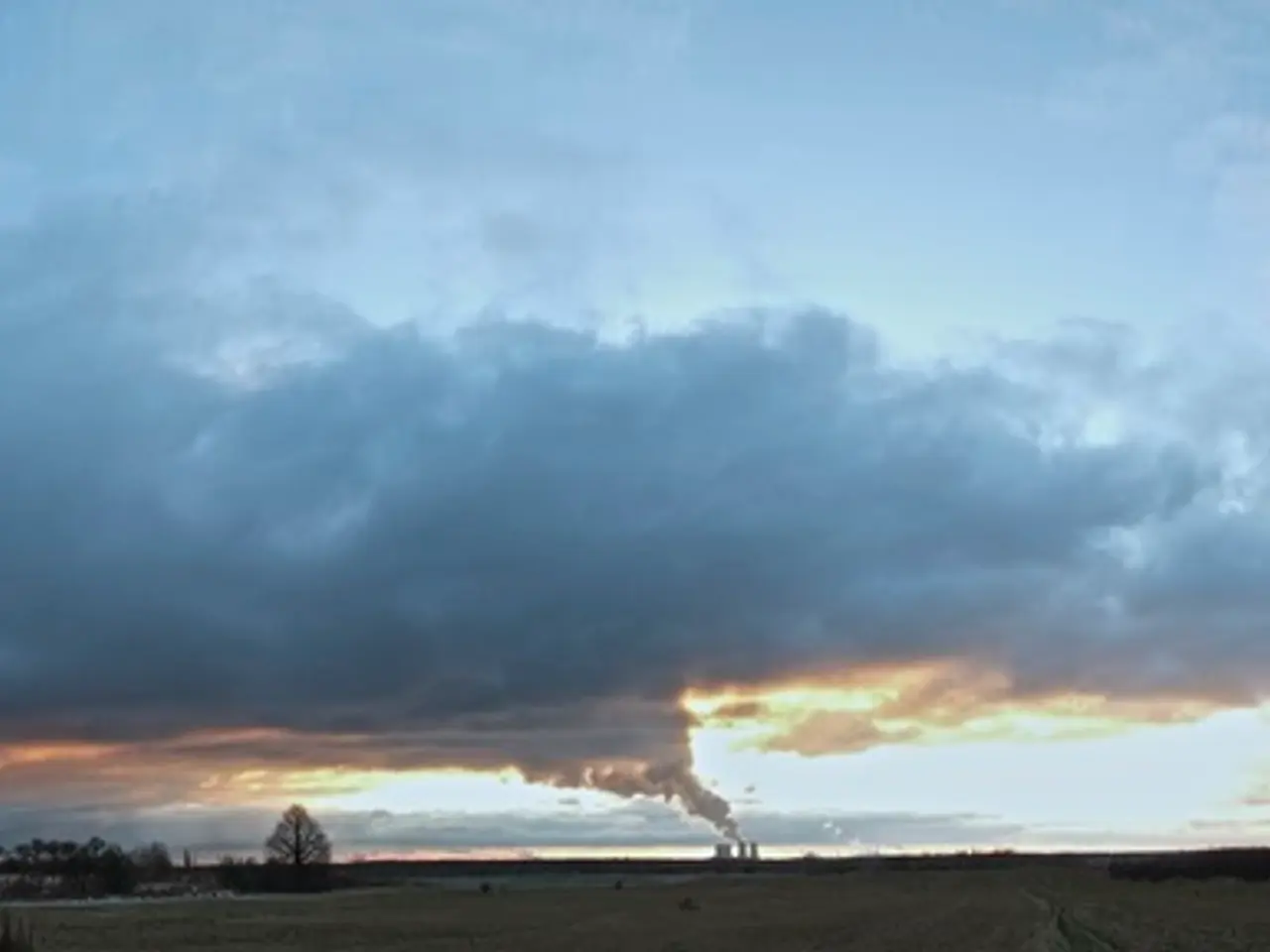Texas-based cloud seeding company, RainMaker, conducted operations in regions hit by floods two days prior, as reported. The CEO of RainMaker is financially backed by technology investor Peter Thiel, and reportedly has connections to Palantir.
In the realm of tech entrepreneurship, Augustus Doricko, a 25-year-old Thiel Fellow, has made waves with his innovative startup, Rainmaker. This next-generation cloud seeding company, founded by Doricko, aims to address water scarcity issues by enhancing precipitation through weather modification techniques.
Rainmaker's primary focus is on cloud seeding, a process that involves introducing substances like silver iodide or salt into clouds to increase rainfall or snowfall in targeted areas. This technology has the potential to alleviate drought and water shortages, making it a promising solution for regions in need.
However, the company's operations have raised questions about the ethics and oversight of private weather experiments. In July 2025, allegations surfaced online that Rainmaker's cloud seeding activities contributed to devastating floods in Texas. In response, Doricko clarified that Rainmaker did not operate in the affected areas on the days leading up to the floods, and the last seeding mission was on July 2, 2025, in south-central Texas, with the seeded clouds dissipating before the flooding occurred.
Despite Doricko's clarifications, online conspiracies and misinformation persisted, leading to further explanations and interviews, including one with CNN. The flooding in Texas, a documented event, remains a point of contention, with some questioning the lack of public vote, consent, or accountability associated with Rainmaker's cloud seeding operations.
In addition to the controversy surrounding Rainmaker's cloud seeding activities, Augustus Doricko's unconventional style has been a topic of discussion. Known for his Jesus T-shirt and nicotine pouch signs in his office, Doricko's style has been seen as mocking by some, while others view it as a reflection of his youthful spirit and non-conformist approach to business.
It is important to note that Rainmaker's operations are privately funded and currently unregulated. The sources for this information include Celia Farber's Substack, the Thiel Fellowship, and Scientific American.
The relationship between Peter Thiel, co-founder of Palantir, and Augustus Doricko is also noteworthy. Thiel provided $100,000 to Doricko through his Fellowship program, but the public vote, consent, or accountability associated with Rainmaker's operations remains unclear.
As Rainmaker continues to push the boundaries of weather modification technology, the debate surrounding its cloud seeding activities and the ethical implications of private weather experiments is likely to persist.
- Amidst the controversies surrounding Rainmaker's cloud seeding activities, the ethics of private weather experiments have become a pressing topic in discussions about science, technology, and policy-and-legislation.
- As the founder of Rainmaker, Augustus Doricko's unconventional style has not only raised questions about the ethics of his cloud seeding operations but also sparked debates in the realm of politics and general-news.
- The climate-change precipitation-enhancement methods employed by Rainmaker, while aiming to address water scarcity issues, have raised concerns about the potential financial implications for the insurance industry, given the risks associated with weather modification.
- The relationship between Peter Thiel and Augustus Doricko, both tech entrepreneurs, has also come under scrutiny as questions about public vote, consent, or accountability persist in discussions about the fintech and environmental-science sectors.
- In the midst of online conspiracies and misinformation, the role of artificial-intelligence and technology in media and communication has been highlighted, revealing the need for increased accuracy, transparency, and responsibility in news reporting.
- As Rainmaker continues to innovate in the field of weather modification, the debate on the ethics of private weather experiments, the role of finance and fintech, and the need for policy-and-legislation supervision in the tech industry is likely to intensify.




